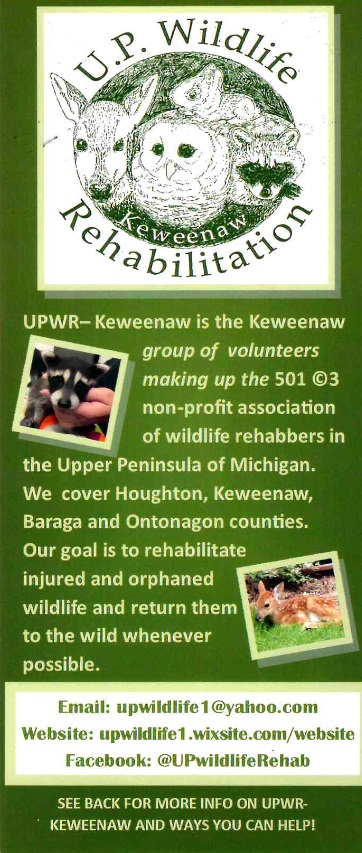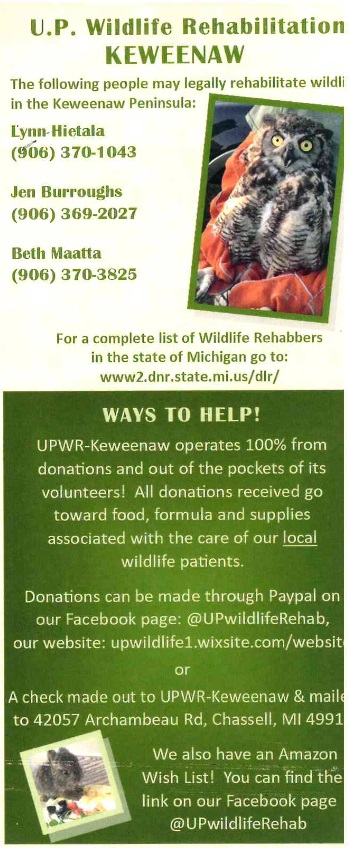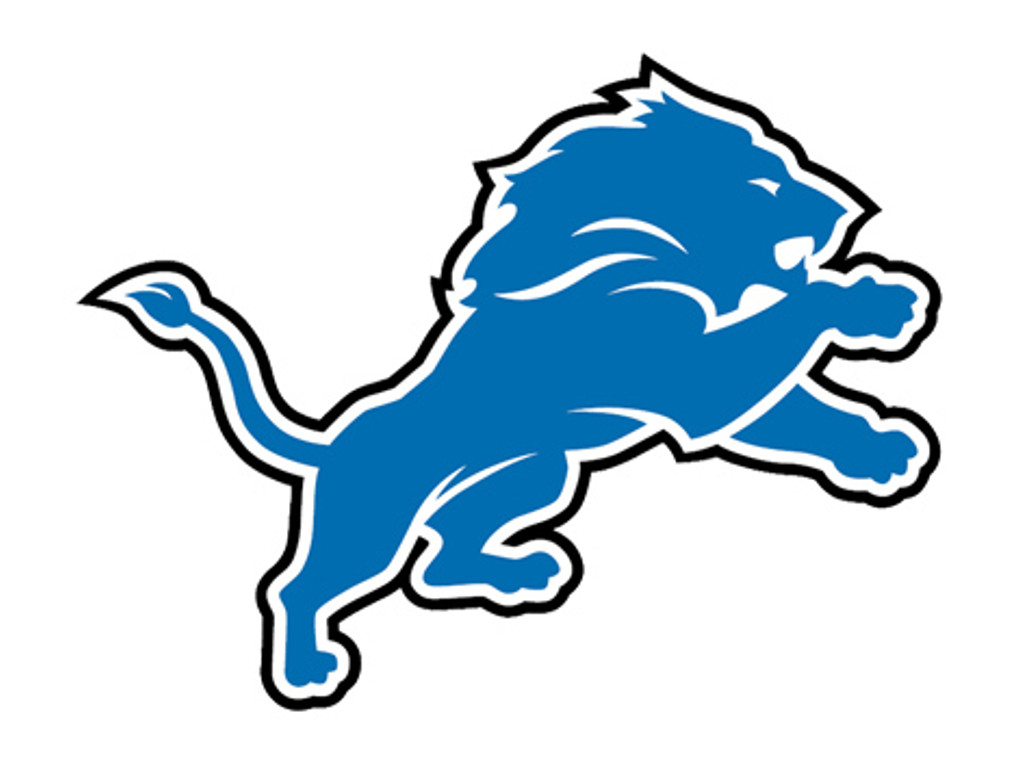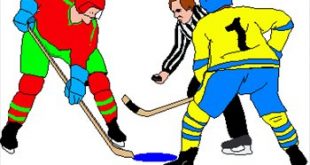Animals across the Upper Peninsula are becoming much more active this time of the year. From the black bears coming out of hibernation, and some of the water fowl and other birds returning. This time of the year has the most interactions between wild animals and humans, because animals are much more active seeking out partners and food; which can lead to the easy spread of diseases.
“Congregation. A bunch of animals in one area eating. Eating anything, eating bird seed, or whatever you want to throw too. Say Raccoons, one raccoon comes in with a disease, and they’re in a group of 20 other animals. They will all get sick. So you’re basically infecting an entire population. And then they take it and go back out into the woods. They’re spreading it to everything. And I think that goes for birds too. With feeding them at bird feeders you have to be careful about congregation.” – Jen Burroughs, Mammal Rehab Specialist, UP Wildlife Rehabilitation – Keweenaw

Upper Peninsula Wildlife Rehabilitation’s Mammal Rehab Specialist, Jen Burroughs, adds that the quickest way different wildlife diseases spread starts with humans. Whether that be garbage can meals for bears, or bird seed thrown into the backyard. The diseases she is most concerned about for wildlife any given year are Parvovirus and Distemper virus. Raptor Specialist, Beth Maata, says she goes as far to not put out bird feeders this time of the year, to discourage both animals congregating and bears from coming into her backyard.
“So the bears come out of hibernation, and they of course they’re looking for food. They’ve gone all winter, they’re hungry. And they’re very good at finding it. Whether its your garbage; or your bird feeders. So we recommend of course always keeping your garbage contained. But also feeding the birds, I stop feeding birds this time of the year. Because I have had bear come into my fenced in yard. And climb over, and they damage the fencing. But they will become acclimated. If they know where there’s food, and it’s always there, they’re going to keep coming back. And that’s when we see a lot of conflicts, and there are a lot of calls. The DNR gets a lot of calls and then they have to trap the bear. And if it keeps coming back, it because a nuisance animal. And it will have to put down, and we don’t want that.” –Beth Maatta, Raptor Specialist, UP Wildlife Rehabilitation – Keweenaw

Burroughs says that small critters such as squirrels, mice, and small mammals try to find space in homes this time of the year for safe places away from predators. And there are a number of ways to humanly encourage animals to leave your home.
“They’re looking to get into your attic. You really, for us, you have to go through your rooflines, and look for entry points. That doesn’t mean they’re going to stay. You can humanely evict them. That’s a huge thing we are trying to talk with the public about. They don’t like light. Squirrels will always build two nests or more. So you can evict them with bright light and loud noise. And she’s going to move those babies, because she wants nothing to do with you.” – Jen Burroughs, Mammal Rehab Specialist, UP Wildlife Rehabilitation – Keweenaw
If you find an injured animal on the side of the road, in your yard, or while out in the woods, UP Wildlife Rehabilitation Keweenaw says to contact them or your nearby licensed wildlife rehabilitation center to get the animal the proper care.
And watch out for future education and fundraising programs with the organization throughout the coming weeks. UP Wildlife Rehabilitation is supported primarily by fundraising, personal donations, and material donations. If you want to get involved or want to help support the incredible work by the rehabilitation center, contact Jen or Beth with any questions.
UP Wildlife Rehabilitation – Keweenaw Facebook page
UP Wildlife Rehabilitation – Keweenaw Instagram Page
UP Wildlife Rehabilitation – Keweenaw Website
UP Wildlife Rehabilitation – Contact – upwildlife1@yahoo.com or call one of the phone number listed in the above photos.
Donate to help support UP Wildlife Rehabilitation – Keweenaw’s efforts to protect animals in the region.
 Keweenaw Report Your Source for Local News and Sports
Keweenaw Report Your Source for Local News and Sports





